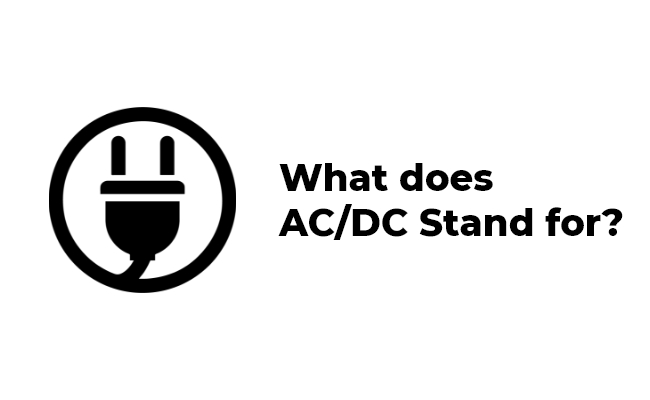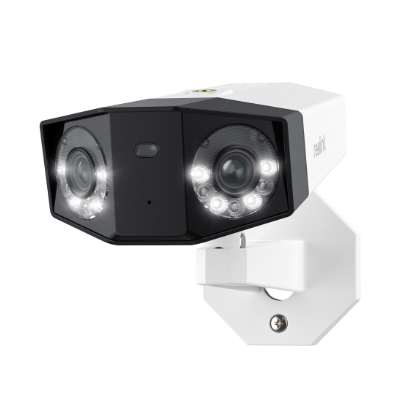What does AC/DC Stand for? AC/DC stands for alternating current/direct current electricity. The acronym AC/DC holds significant meaning, representing the fundamental concepts of alternating current and direct current. This article will explore the essence of AC/DC and compare main differences between n these two essential forms of electric power.
What Does AC DC Band Stand For?
ACDC, the iconic rock band, derives its name from the abbreviation "Alternating Current/Direct Current," as per what does ACDC stands for in the band. This signifies the band's electrifying energy and ability to switch between different musical currents with power and ease. The choice of AC/DC reflects the band's focus on delivering a dynamic performance akin to the electrical currents they are named after.
In essence, ACDC embodies the fusion of contrasting elements in their music, creating a high-voltage experience for fans worldwide. According to what does ACDC stands for urban dictionary, the band's name symbolizes their electrifying energy and dynamic performance style.
AC/DC Meaning in Electronic Devices
AC/DC refers to alternating current (AC) and direct current (DC), two fundamental types of electrical power. AC alternates direction periodically, while DC flows consistently in one direction.
What does AC Mean?
AC, short for Alternating Current, is a type of electrical current that periodically changes direction. In an AC circuit, the flow of electric charge alternates back and forth, typically following a sinusoidal pattern.
This form of current is commonly used in households to power various devices, as it can easily be converted to different voltages using transformers. AC power is also efficient for long-distance transmission, making it ideal for powering homes, offices, and industries.
What does DC Mean?
DC, which stands for Direct Current, is an electrical current that flows consistently in one direction. Unlike AC, DC maintains a constant polarity without reversing. Devices such as batteries and solar cells generate DC power.
This type of current is often used in electronic devices that require a stable and continuous flow of electricity, like smartphones, laptops, and LED lights. Understanding the distinction between AC and DC is essential for designing, operating, and troubleshooting electronic systems effectively.
AC vs. DC Power: What's The Difference?
Diving deeper into the distinctions between AC (Alternating Current) and DC (Direct Current) exhibits their foundational roles in powering our contemporary global, every acceptable to unique programs because of their inherent houses.
Direction Of Current
- AC power's ability to alternate directions is key to its efficiency in long-distance transmission, enabling the widespread electrical infrastructure that lights up cities and powers industries across the globe.
- DC power flows in one direction, making it ideal for applications requiring consistent voltage, such as electronic devices and battery systems. Its reliability is crucial in technology, from smartphones to life-saving medical equipment.
Voltage And Frequency
- The versatility of AC in adjusting voltage levels through transformers facilitates its use in diverse settings, from residential homes to large industrial complexes. Its standardized frequency ensures compatibility with appliances worldwide.
- DC's constant voltage is vital for the operation of sensitive electronics, providing a steady source of power to intricate circuits found in computers, precision instruments, and renewable energy storage solutions.
Power Generation
- Generated primarily by power plants, AC's capability to cover vast distances with minimal loss is foundational to national grids, ensuring efficient delivery of electricity to end-users.
- DC generation through batteries, solar panels, and other means supports localized and off-grid energy solutions, aligning with sustainability goals and the push toward decentralized energy resources.
Conversion Efficiency
- While necessary, the conversion between AC and DC introduces efficiency losses. However, advancements in the era have significantly decreased those losses, improving the overall performance of electrical structures.
- The method of converting DC to DC is commonly more efficient. It is specifically beneficial for portable and renewable power programs, in which maximizing strength use and minimizing waste is paramount.
Safety
- AC's capacity hazards, specifically at better voltages, necessitate rigorous safety requirements and gadgets to mitigate risks, emphasizing the importance of electrical safety in each home and business setting.
- Despite DC being more secure at decreased voltages, warning is cautioned at better voltages where it can pose significant dangers, underscoring the need for complete safety measures in all electrical programs.
AC/DC Power for Security Cameras: Which is Better?
Security cameras often utilize DC (Direct Current) strength, with 12V DC and 24V DC being commonplace specifications. This choice for DC energy stems from its ability to offer strong, low-voltage electricity, which is crucial for the sensitive electronics within cameras. DC's advantages include a straightforward, efficient power supply that minimizes interference, ensuring the reliable performance of security systems.
Furthermore, many cameras come equipped with DC power adapters, simplifying installation and maintenance. While AC (Alternating Current) can offer benefits like longer cable runs without significant power drop, the simplicity and reliability of DC power make it a popular choice for security camera systems.
Best Home Security Camera With AC/DC
For those seeking top-tier home security cameras compatible with both AC and DC power, the market offers robust options. These cameras are designed for versatility, ensuring seamless integration into various power setups.
Ideal choices include models that support PoE for DC power alongside traditional AC adaptability, providing users with flexible installation options. Look for cameras featuring high-definition video capture, advanced motion detection, and night vision capabilities to ensure comprehensive surveillance around the clock.
Best PoE Camera With DC Power: Reolink Duo 3 PoE
The Reolink Duo 3 PoE stands proud as a first-rate PoE digital camera, drawing power immediately over Ethernet for a simplified, clutter-loose setup.
This digicam boasts a groundbreaking 16MP UHD resolution with dual-lens generation, delivering a breathtaking 180° view that leaves no nook unsecured. Its innovative Motion Track feature summarizes motion events into concise images, providing quick insights into recent activities.
Groundbreaking 16MP Dual-Lens PoE Camera
16MP UHD, Dual-Lens, Motion Track, 180° Wide Viewing Angle, Power over Ethernet, Color Night Vision.
Best DC Battery-Powered Wireless Camera: Reolink Argus Track
For a cordless solution, the Reolink Argus Track emerges as the premier battery-powered wireless camera. Offering the ultimate flexibility and ease of installation, this camera can be placed virtually anywhere without worrying about power outlets.
It features smart tracking, automatically following movement to capture crucial footage. The Argus Track provides clear, high-quality video even in low-light conditions, ensuring reliable surveillance day and night.
4K Dual-Lens Wi-Fi Solar/Battery Camera
4K 8MP Ultra HD, Auto-Zoom Tracking, Pan, Tilt & 6X Hybrid Zoom, Color Night Vision, Dual-Band Wi-Fi.
FAQs
How Did ACDC Get Its Name?
AC/DC got its name from the electrical term "alternating current/direct current." The band's founding members spotted the abbreviation on an AC adapter and found it fitting for their electrifying rock sound.
What Does AC DC Slang Mean?
In slang, "ACDC" is sometimes used to describe someone who is bisexual, stemming from the band's name but not its intended meaning.
What Is The Full Meaning Of AC DC?
The full meaning of "AC/DC" refers to "Alternating Current/Direct Current," highlighting devices that can operate with both types of electrical power.
Conclusion
Understanding the significance of AC/DC power goes beyond its technical definition in electronic devices. It symbolizes the dynamic interplay between alternating current and direct current, shaping our modern world from the electrical grid to the music stage.
Whether powering our homes, Security cameras, or driving technological innovations, AC/DC remains a fundamental force. Do you understand the AC/DC meaning now? Share your thoughts with us in the comment section below! Let's discuss together!



